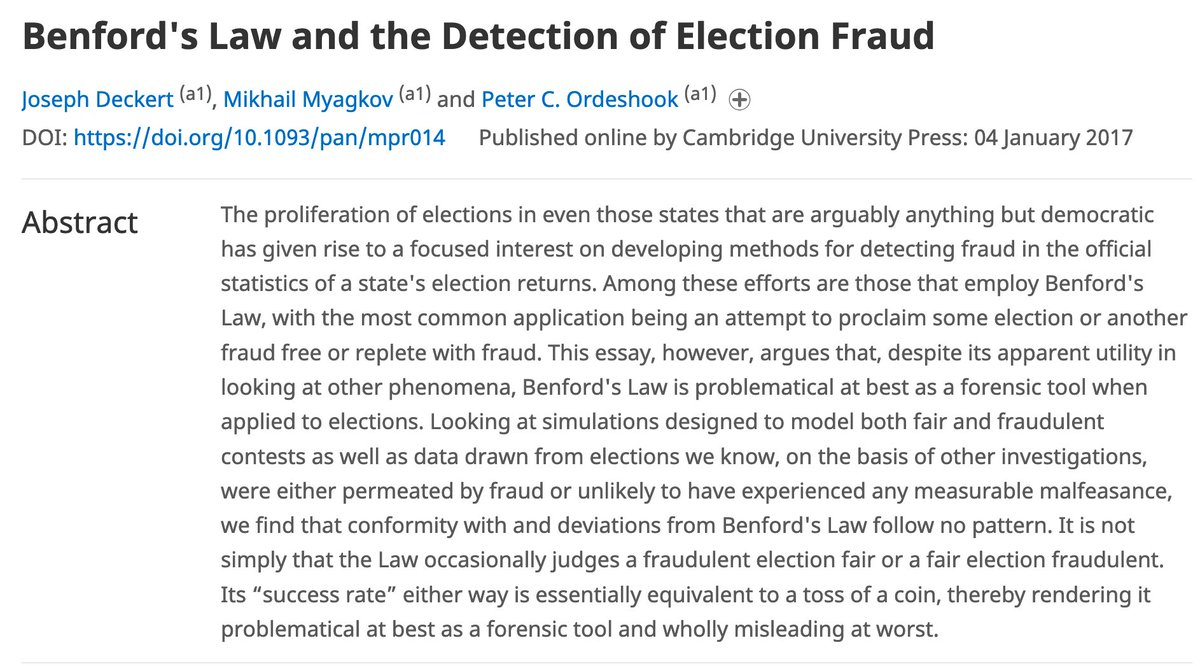My friend, I am an expert on Benford& #39;s Law (in fact, I& #39;m in that documentary you watched about it on Netflix). If you& #39;d like me to explain the countless ways you don& #39;t know what you& #39;re talking about here, let me know. https://twitter.com/ukipwebmaster/status/1325136315889770503">https://twitter.com/ukipwebma...
LET& #39;S DO THIS! (listen up @ukipwebmaster & whoever made that stupid graphic)
Benford& #39;s law is NOT EVEN USEFUL for detecting election fraud!
Deckert, Joseph, Mikhail Myagkov, Peter C. Ordeshook. "Benford& #39;s Law and the detection of election fraud." Political Analysis 19.3 (2011)
Benford& #39;s law is NOT EVEN USEFUL for detecting election fraud!
Deckert, Joseph, Mikhail Myagkov, Peter C. Ordeshook. "Benford& #39;s Law and the detection of election fraud." Political Analysis 19.3 (2011)
Let them tell you!
"Benford& #39;s Law is problematical at best as a forensic tool when applied to elections…Its & #39;success rate& #39; either way is essentially equivalent to a toss of a coin, thereby rendering it problematical at best as a forensic tool and wholly misleading at worst."
"Benford& #39;s Law is problematical at best as a forensic tool when applied to elections…Its & #39;success rate& #39; either way is essentially equivalent to a toss of a coin, thereby rendering it problematical at best as a forensic tool and wholly misleading at worst."
NEXT, even if we pretended Benford works here (WHICH IT DOES NOT) what are the numbers that feed those graphs you have? They& #39;re not even labeled. You can& #39;t just pick numbers willy-nilly and analyze them for Benford& #39;s adherence. It works on very specific types of numbers.
But let& #39;s say you& #39;re theoretically working with numbers that could adhere to Benford. They need to be pulled from similar samples. The vote count over time in this election is not coming from similar samples as previous years
IN CONCLUSION, you don& #39;t even know what numbers you& #39;re showing here, there& #39;s no evidence they are even Benford appropriate, you& #39;re comparing to a completely different election phenomenon, and BENFORD DOESN& #39;T DETECT ELECTION FRAUD!
In shorter conclusion, STAY IN YOUR GODDAMNED LANE AND OUT OF MINE
p.s. If you don& #39;t know about Benford& #39;s Law, it& #39;s fascinating! Episode 4 of "Connected" on @netflix with @latifnasser is all about it and it features me and my dogs talking about it!

 Read on Twitter
Read on Twitter


